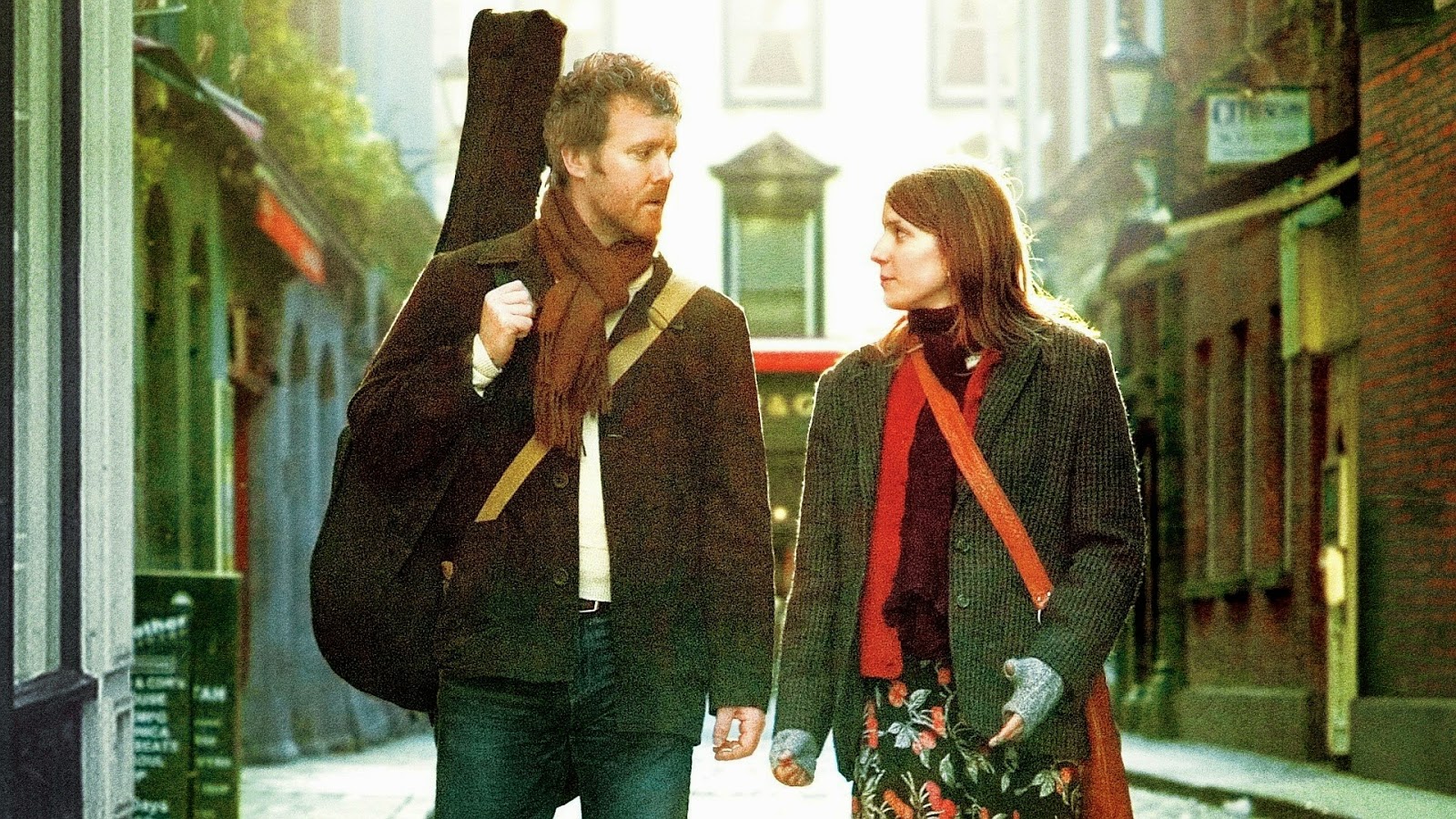Our inaugural film viewing out of the box, as you know, was the musical Once. This was my second viewing of the 2006 feature, and I found myself enjoying the movie despite having already seen it. I must confess, I only remembered vague details going in - this may speak to the quality of the film, or it may say more about my fading ability to recall information. Neither is a great conclusion.
I particularly like the conclusion, actually, because it marries romance with responsibility. This is its most radical departure from the traditions of the movie musical, and its most satisfying move as a film. The ending asks us to think about this story as existing without discrete boundaries. These characters have a real chemistry, yet they have lives that extend both backwards and forwards beyond the opening and the rolling of credits. The untold stories, some of which are glimpsed in the home video montage during the song “Lies,” carry just as much, and ultimately more, weight than what we see on screen. This suggests that there are limits to the power of romance, at least as we are used to seeing it in movie musicals. The limiting agent is responsibility, demonstrated most powerfully through the presence of the Girl’s daughter Ivanka. There are times when the Girl can’t go make music with the Guy - she has to work and provide for her child. In the end, both characters memorialize their romantic connection by making a demo tape of songs, and then respectively do what they are, as human beings, responsible for. There is a particular beauty, however stern, in this presentation.
Adam


No comments:
Post a Comment